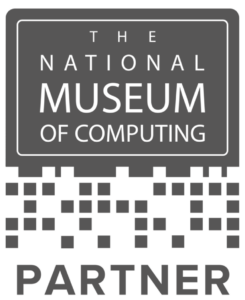In today’s competitive marketplace, business consumers now want far more from their service provider than simply meeting service levels. With IT costs being one of their highest annual expenditures, consumers have an increasing expectation of gaining the maximum value from their investment and usage of the services provided.
Perception is reality. and if your consumers don’t recognise value from what you do, they certainly will recognise cost. In the current economic climate where competitors will claim they can do what you do ‘faster, better, cheaper’, this isn’t a good place to be.
Hottest ITSM trends
To avoid this, the mantra emanating from the latest ITSM best practice, journals and evangelists reflects the necessity for service providers to create and demonstrate value for stakeholders. It’s now ‘value over service’.
This message resonates strongly across the ITSM community with ‘value demonstration’ being cited as one of the hottest ITSM trends in recent research1. Respondents understand the importance of demonstrating value but perhaps also where practical guidance would be helpful. (1ITSM Trends for 2024, ITSM Tools, January 2024.)
Easier said than done?
But surely this should be easy? If we examine IT from a business value perspective, in many ways IT is the business as without IT most digital and IT enabled businesses would simply be unable to function. Therefore, value and worth of your service provision to your business consumers is obvious and shouldn’t prove too much of a challenge to demonstrate.
But perhaps the above represents the biggest mistake we (IT) make when considering the value of IT to the business. Value is very much in the eye of the beholder (your sponsors, customers and users) so no matter how much the service provider promotes the worth of their services the ultimate decision on value remains solely with the consumer.
Ergo, if value is determined by your consumers, then how can you effectively demonstrate the value of your service provision if you don’t understand what they value?
Understanding value
How consumers ultimately determine their view on value is based upon a combination of the following:
- Outcomes: Consumer outcomes that must be achieved
- Expectation: Consumer reference points against which performance is judged
- Perception: How well consumers feel their expectations are being met by their service provider.
Consumers will expect their outcomes to be achieved; after all why would they pay for a service if it doesn’t help them achieve what’s important for their success. Crucially though, consumers will typically make an overall judgement on ‘value’ based not just on outcomes but the gap between expectation and perception.
For example, a sponsor will expect to see a return on investment from their IT services such as increased sales and revenues. Assuming these outcomes are achieved, the sponsor may have an expectation of their services being affordable, but their perception is that they pay too much, and their service provider is too expensive. Here the sponsor is not convinced they are getting value and specifically value for money from their service provider.

The 7 givens – consumer expectations
So, what are the expectations of the consumer organisation? It’s important to recognise that sponsors, customers and users have differing views on what value means to them. Therefore, managing expectations will need to recognise and reflect these differing perspectives.
To understand expectations, it’s good to talk! However, in my corporate experience of working closely with consumers at every level, the following ‘givens’ can be considered a good start point (assuming ‘you’ are the service provider and ‘we’ are the consumer):
- You demonstrate the contribution to our business (+/-) of the services provided.
- Our CX/UX is reflected in your service reporting.
- You understand the business impact on our customers when things go wrong.
- You are proactive and show how you are improving our services.
- We understand our IT costs and you can demonstrate these are competitive.
- You provide us with options/choices on how to make more efficient use of IT.
- You care about us and our customers.
This list is not exhaustive or weighted. However, these pointers can be helpful in determining how expectations can be met and perceptions positively influenced.
The 7 building blocks – getting started
Consumer insight is key to developing a successful ‘value strategy’ that enables the service provider to demonstrate the value of their services and delivery capabilities. Some key considerations in developing an approach include:
- Remember consumers determine ‘value’.
- There are differing expectations of value (sponsor, customer, user)
- Consumers have expectations.
- These need to be understood and strategies devised on how these will be managed.
- Consumer perceptions of value need to be positively influenced.
- Proactively market, target and promote ‘consumer value’.
- Communicate value in a language your consumers will understand.
The following seven initiatives are suggested building blocks to kick start your value strategy:
| Building Blocks | The 7 Givens |
| Create and communicate a value proposition to ‘promote the consumer value’ of your services | 1 |
| Develop and produce business outcome-based service measures and reporting | 1,3,7 |
| Develop experience level agreements (XLAs) to report CX/UX | 2,7 |
| Benchmark IT costs & align IT costs for your IT services to create cost transparency | 5,6 |
| Establish MIM as a critical capability with a robust communications plan to provide consumer stakeholders with trusted, timely and frequent updates | 3,7 |
| Ensure continual Improvement is business led with benefits reported in business terms | 4,6,7 |
| Develop a communication plan to promote how consumer expectations are being addressed to positively influence consumer perceptions | 7 |
Reflection
Your consumers will over time have an expectation of increasing ‘value’ from their investment in the services you provide. This requires a strategic shift in focus by service providers from service to value. The importance of this shift is quite simple… perception is reality. Where consumers are unsure of value then this brings cost into sharp focus. Remember, where consumers have choice, there will be many competitors who will claim they can what you do better, faster, cheaper!



